Sougata Sen
Ges3ViG: Incorporating Pointing Gestures into Language-Based 3D Visual Grounding for Embodied Reference Understanding
Apr 13, 2025Abstract:3-Dimensional Embodied Reference Understanding (3D-ERU) combines a language description and an accompanying pointing gesture to identify the most relevant target object in a 3D scene. Although prior work has explored pure language-based 3D grounding, there has been limited exploration of 3D-ERU, which also incorporates human pointing gestures. To address this gap, we introduce a data augmentation framework-Imputer, and use it to curate a new benchmark dataset-ImputeRefer for 3D-ERU, by incorporating human pointing gestures into existing 3D scene datasets that only contain language instructions. We also propose Ges3ViG, a novel model for 3D-ERU that achieves ~30% improvement in accuracy as compared to other 3D-ERU models and ~9% compared to other purely language-based 3D grounding models. Our code and dataset are available at https://github.com/AtharvMane/Ges3ViG.
Applications and Techniques for Fast Machine Learning in Science
Oct 25, 2021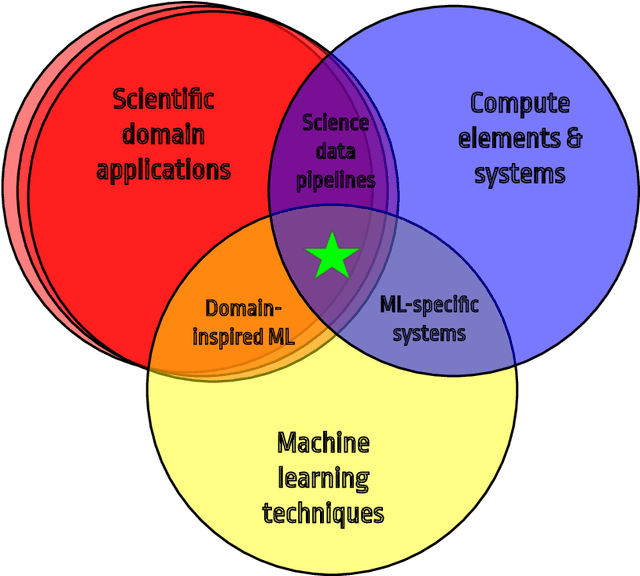
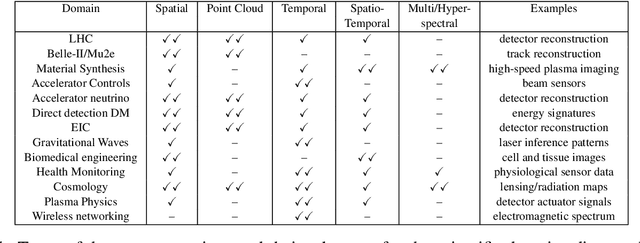
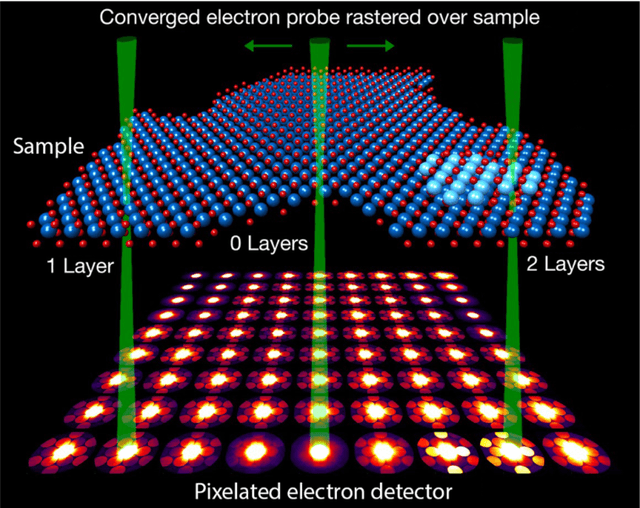

Abstract:In this community review report, we discuss applications and techniques for fast machine learning (ML) in science -- the concept of integrating power ML methods into the real-time experimental data processing loop to accelerate scientific discovery. The material for the report builds on two workshops held by the Fast ML for Science community and covers three main areas: applications for fast ML across a number of scientific domains; techniques for training and implementing performant and resource-efficient ML algorithms; and computing architectures, platforms, and technologies for deploying these algorithms. We also present overlapping challenges across the multiple scientific domains where common solutions can be found. This community report is intended to give plenty of examples and inspiration for scientific discovery through integrated and accelerated ML solutions. This is followed by a high-level overview and organization of technical advances, including an abundance of pointers to source material, which can enable these breakthroughs.
NeckSense: A Multi-Sensor Necklace for Detecting Eating Activities in Free-Living Conditions
Nov 20, 2019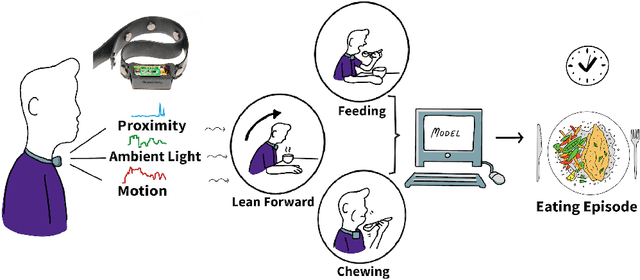


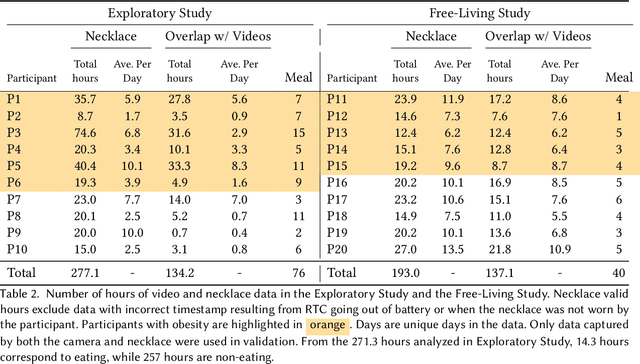
Abstract:We present the design, implementation, and evaluation of a multi-sensor low-power necklace 'NeckSense' for automatically and unobtrusively capturing fine-grained information about an individual's eating activity and eating episodes, across an entire waking-day in a naturalistic setting. The NeckSense fuses and classifies the proximity of the necklace from the chin, the ambient light, the Lean Forward Angle, and the energy signals to determine chewing sequences, a building block of the eating activity. It then clusters the identified chewing sequences to determine eating episodes. We tested NeckSense with 11 obese and 9 non-obese participants across two studies, where we collected more than 470 hours of data in naturalistic setting. Our result demonstrates that NeckSense enables reliable eating-detection for an entire waking-day, even in free-living environments. Overall, our system achieves an F1-score of 81.6% in detecting eating episodes in an exploratory study. Moreover, our system can achieve a F1-score of 77.1% for episodes even in an all-day-around free-living setting. With more than 15.8 hours of battery-life NeckSense will allow researchers and dietitians to better understand natural chewing and eating behaviors, and also enable real-time interventions.
 Add to Chrome
Add to Chrome Add to Firefox
Add to Firefox Add to Edge
Add to Edge